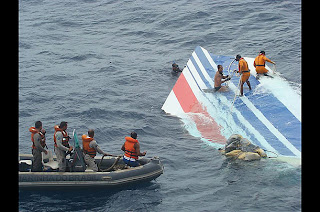 |
| Boeing.com |
Showing posts with label FLIGHT TRAINING. Show all posts
Showing posts with label FLIGHT TRAINING. Show all posts
Tuesday, April 10, 2012
FLIGHT TRAINING CURRICULUM AND EFFECTIVENESS
Srinivas Rao | 1:36 PM |
AF447
|
AQP
|
CURRICULUM
|
DECISION MAKING
|
EFFECTIVENESS
|
FLIGHT SAFETY
|
FLIGHT TRAINING
|
FOQA


Labels:
AF447,
AQP,
CURRICULUM,
DECISION MAKING,
EFFECTIVENESS,
FLIGHT SAFETY,
FLIGHT TRAINING,
FOQA
Tuesday, December 20, 2011
LINE ORIENTED FLIGHT TRAINING (LOFT)
Line Oriented Flight Training is representative line
operations flight conducted in the simulator as if it were just like in real
time, with weather, abnormalities , etc ,simulated, but not reversed to be
retrained or practiced again.The whole essence of the LOFT being airline centred in
checking the effectiveness of operational and training policies and not merely
individual performances.
Of course, individual crew undergoing LOFT are encouraged to
self critique and judge their performance, and more important from organization
standpoint to check how robust its policies and procedures are.
LOFT malfunctions are not pre-briefed and no repositions
allowed, which makes it as realistic as it can be on line and crew decision
making and other attributes tested in a more realistic environment.
Also, being a training oriented session rather than a
checking session, crew are more involved and receptive to the feedback derived
from such exercise and the airline would do well to incorporate some of the
LOFT scenarios from airline incidents/accidents to check the overall crew and
procedural effectiveness.
The LOFT is more of a facilitation tool and the instructor
plays more of a facilitator in the exercise and accords opportunities to crew
to talk about the flight session happenings and derive benefits from it.
If you have experiences with LOFT exercise and have
something to say, or are curious about it and have more questions, kindly send
in your comments/posts.
Friday, December 16, 2011
AIR FRANCE 447 CRASH
Air France 447 crash is turning out to be more of a man vs machine and the perils of too much of automation. Crew skills in airline cockpit are on bane and with crews being exposed to situations never encountered before, the recovery from a situation tends to get more difficult.
Stall series practice every 6 months during recurrent has been order of the day in India when rest of the training systems round the world debated on the benefits of this when the airplane could never be stalled. Now, the order of the day is stall practice with emphasis on high altitude recovery.
Redundancy in automation and recovery by crew and the performance of crew when startled, are bound to affect the recovery and have a direct bearing on whether the aircraft could be saved from a a situation or not.
As STALL has assumed new dimensions in light of AF447 crash,introspection by the training fraternity on other latent safety concerns borne out of automation could well help save potential untoward accidents from taking place.
Stall series practice every 6 months during recurrent has been order of the day in India when rest of the training systems round the world debated on the benefits of this when the airplane could never be stalled. Now, the order of the day is stall practice with emphasis on high altitude recovery.
Redundancy in automation and recovery by crew and the performance of crew when startled, are bound to affect the recovery and have a direct bearing on whether the aircraft could be saved from a a situation or not.
As STALL has assumed new dimensions in light of AF447 crash,introspection by the training fraternity on other latent safety concerns borne out of automation could well help save potential untoward accidents from taking place.
Labels:
ACCIDENT,
AF447,
FLIGHT TRAINING,
PROCEDURE,
STALL,
STALL RECOVERY
Subscribe to:
Comments (Atom)



